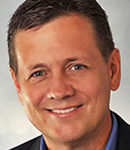BELTON—The women’s movement of the 1960s and 1970s deeply affected Southern Baptist life — ironically making more of an impact on theological education in ultraconservative Southern Baptist seminaries than in the moderate seminaries related to the Cooperative Baptist Fellowship, according to Susan Shaw, professor of women studies at Oregon State University.
“Feminism has had a profound impact on Baptists. And Baptists, particularly at the Southern Baptist seminaries, are deeply engaged with feminism,” she said. “While feminism opened the door for women in moderate Baptist churches and seminaries, it has not transformed these institutions. And while feminism remains a powerful cultural influence, it is marginalized in the CBF schools, despite their stated goal of championing women.”

Shaw, a former Southern Baptist minister who now serves in a United Church of Christ congregation, spoke on a panel discussion during a conference on “Baptists and the Shaping of American Culture,” held Oct. 12-13 at the University of Mary Hardin-Baylor.
“I became a feminist at the Southern Baptist Theological Seminary,” Shaw said, adding she embraced the “feminist” label “not because I lost my Christian faith, but because my Christian faith had led me to feminism.”
At the time, Shaw noted, she was not alone, but that did not mean the majority of Southern Baptists shared her commitment to full social, political, economic and religious equality between women and men.
“Many Southern Baptist leaders, especially those at the denomination’s seminaries and publishing houses, embraced a number of the stated goals of feminism. Many laypeople and pastors, however, opposed the (women’s) movement, seeing it as a threat to patriarchal power and God’s divinely ordered hierarchy of creation,” she said.
Publications of the Southern Baptist Convention’s Home Mission Board and Woman’s Missionary Union in the 1970s particularly offered “a striking picture of a denomination poised to move forward toward full equality for women,” she said.
The magazine articles reflected changes in American culture while “giving them a Southern Baptist flavor,” she noted.
Sign up for our weekly edition and get all our headlines in your inbox on Thursdays
“These publications blazed trails in Baptist life and had enormous influence on the growing consciousness of many Southern Baptists, particularly young women who in historic numbers enrolled in Southern Baptist seminaries in the 1970s and 1980s,” Shaw said.
However, significant changes in SBC leadership began in 1979, the start of the so-called “conservative resurgence.” By 1984, the convention had adopted a resolution that excluded women from pastoral leadership.
“Moderate Southern Baptists faithfully defended women’s right to answer the call to ordained ministry—although few moderate churches ever called women as senior pastors. The issue of women’s ordination then became one of the primary influences in the decision of many moderates to break away from the Southern Baptist Convention and form the Cooperative Baptist Fellowship,” she said.
The SBC continued to direct attention to the role of women—not only in the church, but also in the home, amending the Baptist Faith & Message to include a section on the family that called on wives to submit graciously to their husbands.
Even in that resolution, Shaw noted, Southern Baptists argued women and men are of equal worth before God, and both male and female are created in God’s image. However, they insisted, God ordained specific gender-based roles that place men in leadership positions.
“Here, the fundamentalists draw from the rhetoric of feminism even as they oppose it,” she said. “While espousing a belief in the equality of women and men, they reinforce patriarchal family structures that disadvantage and control women. These statements attempt to appease women’s sense of fairness and need for self-worth, all the while maintaining them in a subordinate position, completely reliant on the benevolent protection of men.”
Likewise, three of the six Southern Baptist seminaries have women’s studies programs that suggest the issues raised by feminism are important enough to be reflected in the curriculum — even if they are by way of rebuttal.
“Granted, they are antifeminist,” she said, noting her discomfort with their appropriation of the “women’s studies” label. “Nonetheless, these seminary programs do indicate focused attention on women’s issues and give women a central place in the seminaries’ curricula. I see these programs as a direct response to the progress made by feminism.”
However, the women’s movement seemed to make less of a lasting mark on seminaries that partner with the moderate Cooperative Baptist Fellowship.
“CBF seminaries actually offer very few courses focused on women. In fact, CBF seminaries have very few women on their faculties,” Shaw said. Excluding adjunct instructors, women represent only about 15 percent of the faculty at the CBF-related seminaries, she reported.
“Certainly, the CBF seminaries hold more progressive views of women than do the SBC seminaries, and I suspect the CBF seminaries would argue that they try to integrate women’s issues throughout the curriculum,” she said. “Still, when I talk to my women friends who have been on the faculties of CBF seminaries, I hear stories that affirm my suspicion that attention to women’s issues is an add-on rather than a central component of CBF theological education.”














We seek to connect God’s story and God’s people around the world. To learn more about God’s story, click here.
Send comments and feedback to Eric Black, our editor. For comments to be published, please specify “letter to the editor.” Maximum length for publication is 300 words.